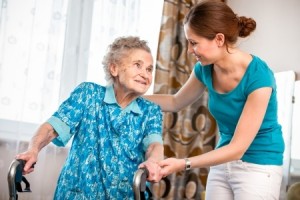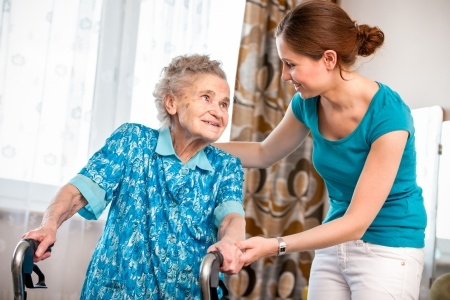Grief and Loss: When the world spins out of control
January 22, 2014 | Mental Health

Recently in my work as a Care Manager I’ve witnessed many of the families I work with grappling with loss. As we age most of us expect a loss of ability, functioning, movement, and health. But the reality is that expecting these losses is much different than actually experiencing them and living through them. Not only do our older loved ones experience these losses, their family members do as well. It’s not easy to see your mom lose her ability to drive and have her license removed. It’s hard to talk to your grandma on the phone when she doesn’t remember who you are. Aging affects the entire family unit.

Processing loss can be incredibly difficult. I’ve met family members who desperately want more help and home care for their loved ones, yet mom and dad adamantly refuse. “We’re fine.” Unfortunately it sometimes takes a tragic event, like a fall or an overdose of medication, before an aging loved one is convinced they could use some assistance in the home.
Our culture emphasizes individuality, ability, success, and independence. As we age we need more help with getting through our days, be it with driving, showering, grocery shopping, etc. It is incredibly difficult to admit that we can no longer care for ourselves on our own. No one wants to admit that they are “old,” and that they can’t care for themselves alone anymore. Many may feel humiliated, or that they are less of a person.
I think we need to change this pattern. It’s okay to ask for help, and it can actually radically improve your quality of life. Every day, I see that a little help goes a long way. I recently started working with a couple in their 80’s who live independently. They now receive home care for just four hours a day, and within a few weeks the husband has seen his wife perk up, become more talkative, and more alive. He has also felt relief of not having to do everything for his wife himself. He has time to ride his stationary bike and work on the computer. Bringing in that little bit of help has gone a long way.
It’s emotionally difficult to overcome the losses associated with aging. But with support and acceptance this process is easier. Talking about what you are experiencing with friends, family, or a professional counselor can help. Caregiver support groups can also be a source of normalization and support. You don’t have to suffer alone; this is a common experience, and help is out there, so don’t wait until it’s too late. Call us at Elder Care Guides, or reach out to another agency in your area for support and guidance.

